The Problem(s) With Mission Trips
My Mission Trip Story
I credit my first mission trip for changing my life. It was a one-week visit to the Dominican Republic that I did in college with my church.
I was already obsessed with travel and enamored by learning languages, but before that trip, I wasn’t sure if travel to developing countries would be for me.
Riding out to a Haitian-Dominican squatter community in the back of a rickety Daihatsu flatbed truck with twenty members of our team, I remember feeling so alive. The bumpy dirt road was below us, the warm wind slapping around our hair, palm trees on either side of the road, and bright blue skies above.
The experience was not all warm and fuzzy, though. It was very eye-opening. And it definitely took me out of my comfort zone to walk into a community of make-shift shacks, no plumbing or sewer system, with snotty-nosed, half-naked kids wanting to hold my hand.
But I went with it. And by the end of the week, what had once felt weird and different was no longer so scary.
The organization who hosted us was in need of a summer intern to help coordinate all the short-term American teams that visit during their busiest season. It would be the first time I experienced my “sweet spot”: where my passions and talents combined to help meet a need.
Because of that one-week mission trip, I signed up for the summer internship (two years in a row), taught myself Spanish, and embarked on a life-long journey to learn more about how to change the world for the better.
I don’t deny that my mission trip experience was powerfully beneficial.
But notice who benefited: me.
Now, more than a decade later, I wish I knew then what I know now.
Youth workshop, Dominican Republic 2006
Why Mission Trips Often Fail to Alleviate Poverty
I think a lot of people are under the illusion – my past self included – that short-term mission trips to developing countries will solve a problem or “fix” things. In most cases, we have good intentions and want to be helpful. But what we don’t realize is the following:
1. Poverty is complex
Poverty is about much more than a lack of material goods. It’s about a lack of choice and not being empowered to live up to your potential. Poverty is caused and perpetuated by a whole complex system of factors, including political corruption, unfair international trade laws, environmental degradation, illiteracy, and the list goes on. All that to say: there is no magic, silver bullet solution.
Treating one of the symptoms of poverty – the lack of material resources – by providing food, handing out blankets, or constructing buildings may be necessary in a dire emergency. But in terms of long-term development in a community, it can actually be harmful.
2. The poor are not helpless
Although those of us in the developing world who are going on these mission trips may be better off in a material sense, it’s really important to realize that we’re not “better” than the people we’re trying to help. And the poor are not actually helpless.
Rather, every person possesses undeniable human dignity and every person has something to give. Wisdom, experience, resilience, creativity – these are important assets that don’t require material wealth.
The “White Savior Complex” is a dangerous side effect of many mission trips. We don’t realize that we love to play “savior” or Santa Claus, which is highly disempowering and even belittling to those being helped. It may give us instant gratification to hand out toys, but it ignores the long lasting consequences.
Despite our good intentions, we’re actually promoting dependence rather than empowerment, perpetuating an unhealthy dynamic where the benevolent, rich foreigner is savior and the materially poor person is helpless.
3. We are not all that helpful
With the exception of trained experts who have resources to meet pressing needs that a community cannot meet for themselves (doctors in communities without healthcare are a prime example of this), the work we do on a short-term mission trip is rarely as helpful as we think it should be.
Most of us participating in mission trip projects are not actually the best equipped people for the job. I don’t say this as a put-down, but it’s important to realize for three reasons.
One, when we’re doing work “for” someone that they can do for themselves, we’re disempowering that person.
Two, we’re often only there for a week, so our ability to make a lasting impact is severely limited.
Three, when we travel to another country, the true experts are the local people who have grown up in that community. They know what’s effective and how things work in their culture. They are the ones who need to have “buy in” because they’ll be present for the long-haul to follow up and make the project sustainable.
A more effective way to alleviate poverty is through long-term, sustainable programs that work alongside and empower community members to help themselves. Mission trips can play a role in these efforts, but it absolutely must be done intentionally or else it can quickly become more harmful than helpful.
A Better Way: Examples of Healthy Service and Ministry
Haitian leaders sharing about the community, 2010
After Jedd and I got married, the first mission trip experience we did together was in Haiti. Rather than being service project-based, the trip to Haiti was called a “vision trip.” Our main focus was to see and learn about what was already going on in the community.
The trip leaders introduced us to a very impactful book called When Helping Hurts: How to Alleviate Poverty Without Hurting the Poor and Yourself. (This is where many of the points above came from. I also wrote about the main principles here.)
We were really fortunate to have this experience with an organization that exemplifies empowering, sustainable development: Haiti Foundation of Hope.
Another organization that has a great model for mission trips, which they call Delegations, is Witness for Peace.
Each organization has unique strengths, but together they’ve given us a beautiful picture for how to do short-term trips effectively. Here are some examples:
1. Leadership comes from host country nationals
Haiti Foundation of Hope is adamant about empowering local leadership, a Haitian Pastor and his wife who have dedicated their lives to the poor in Terre Blanche, Haiti.
Although resources like medical supplies and funding for the school come from the US, it all flows through the local church.
If a visiting American doctor wants to pay for a patient to get treatment in the capitol, the Haitian Pastor has final say and the gift is not given directly from doctor to patient, but rather comes through the community church.
As a result of practices like this, it was apparent that the village of Terre Blanche had hope. Unlike the other areas of Haiti we passed through, we didn’t experience any begging there. If they had a need, they knew they could go to their own community leaders – people who were there for the long-haul.
When it comes to long-term development, every effort should be made for nationals to play a central role in assessing their community’s needs, planning and implementing solutions, and reaching their potential as human beings.
2. Short-term teams are there to witness and to learn
With the serious problems I’ve called out earlier in this post, you might assume that I think short-term trips are not worth it. That’s actually not the case. In my own story, this kind of travel changed my life. And that kind of transformation is really valuable.
Witness for Peace delegations in Latin America use their trips to visit places like the Free Trade Zone factory where North Face jackets are made and the city dump where people eke out a living picking out recyclables.
Witness for Peace sets up meetings with local community leaders who are protesting the use of dangerous gases on banana plantations or who have developed a grassroots health education program for their neighborhood. They arrange home stays with coffee plantation workers in a tiny mountain village where the alarm clock is a gaggle of roosters and dinners are cooked over open flame.
Let me tell you, I learned more in that three week Witness for Peace trip to Nicaragua than I have in any class, ever. I’d be willing to bet that almost every single one of the college students I went with would tell you that it was one of the most impactful things they’ve ever done.
3. The trip is just the beginning
A short-term trip is just a blip on the timeline of life. The real magic should happen when you get home. After you’ve had your transformational experience, it’s time to do something about what you’ve witnessed and learned.
Witness for Peace is great about this because they spend a lot of time at the end of the trip doing advocacy training and creating an action plan for when you go home.
(Side note: Most organizations that receive short-term mission trips will probably tell you that the primary value of their teams is not the work they do during the one week they visit the country but rather the fact that those people tend to become long-term supporters of the organization’s work.)
There are so many ways to magnify the impact of a short-term trip. Understanding how our own nation’s policies impact developing countries means we have a duty to be informed citizens and use our influence as voters.
Understanding how some of our life choices impact workers in developing countries means we should make intentional choices about the products we consume and the brands we support.
Understanding the history and culture of a new place means we can become ambassadors to people at home who haven’t shared our experience. These are ways we can make a difference from home, for the rest of our lives.
A transformational trip should inspire us to become life-long learners, advocates for justice, better global citizens, and long-term supporters of organizations who are doing empowering, sustainable work.
Much more than the impact of a one-week service project, the true benefit of a “mission trip” should be a life transformed and the ripple effect brought about by that new perspective.
Jamaica. Photo credit: Dreamspace Collective
Understandably, this could be a controversial subject for some folks. My intention is not to bash on mission trips (again, I credit them for changing my life) but rather to offer some perspective and challenge all of us to be better.
When we want to be helpful in the world, it’s not enough to have good intentions.
We need to ensure we’re participating in sustainable, empowering, effective, truly helpful work with a humble, accurate view of our role in development.
What examples have you seen of positive or negative mission trips or international development? Do any of these arguments resonate with you or challenge you? I’d love to hear your constructive thoughts in the comments below.


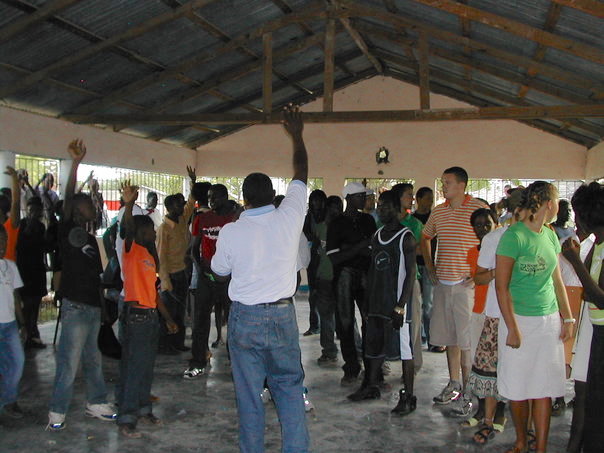
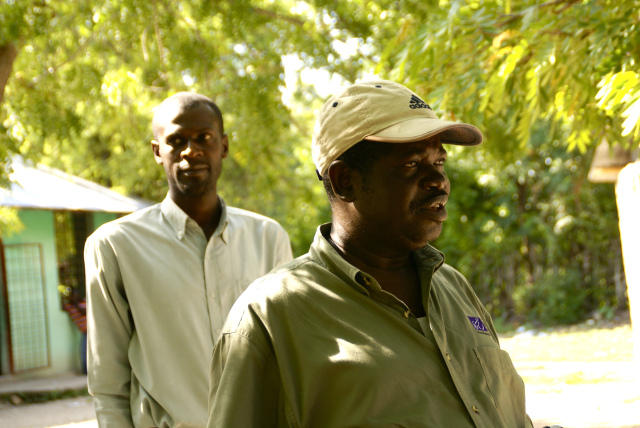
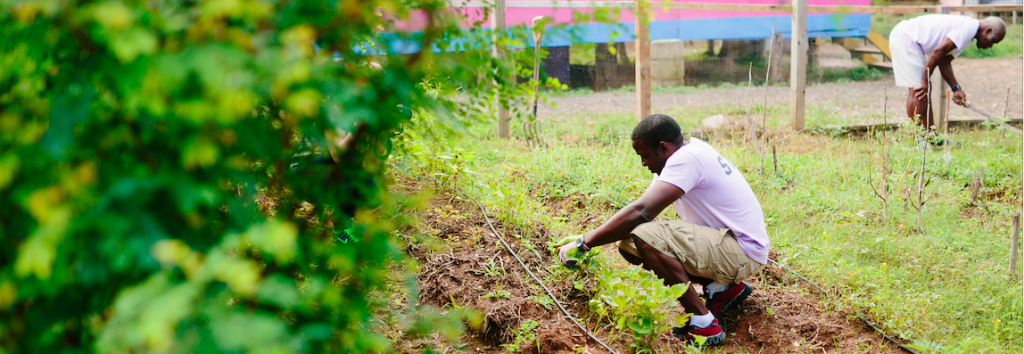

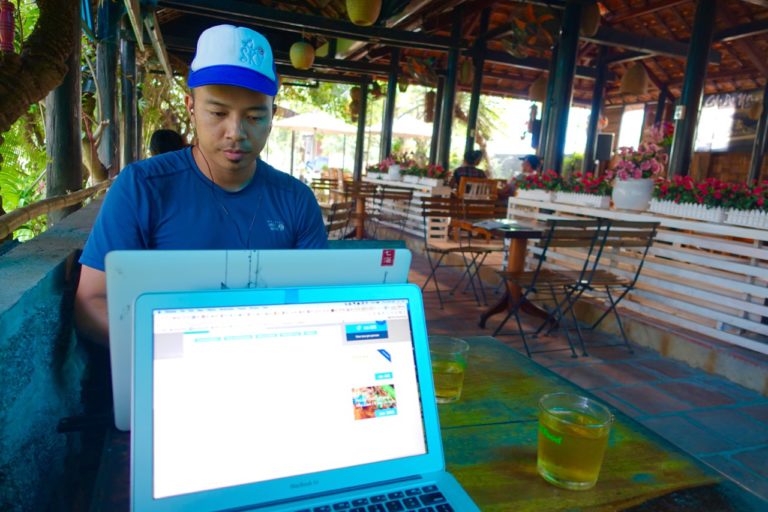


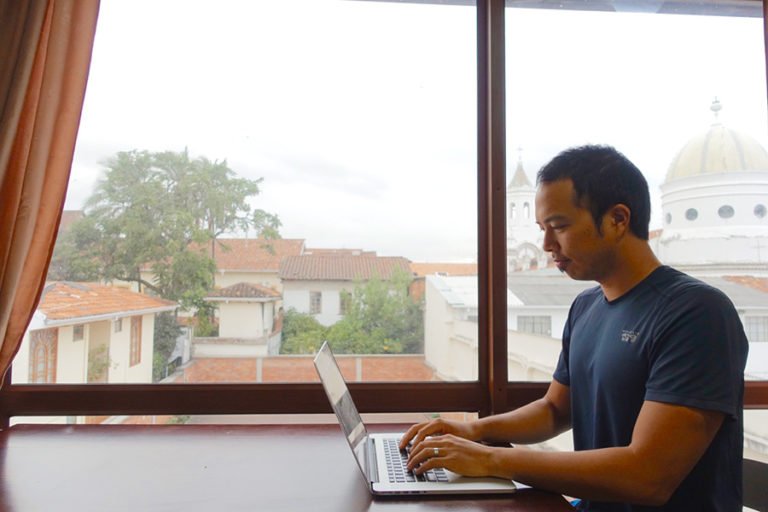

Thanks for your article. I am working with Christian Schools in Australia to help them re-think their traditional ‘mission trips’ and build a new strategy based around the ideas you’ve mentioned above.
Thanks, BD. We hope your project goes well.
I go to a Christian university and I’m researching missions trips. This article was very helpful in providing a balanced look at the effects. I’d like to know more about the connections between the local church and the US supplies. Would a US church get supplies from somewhere and then deliver it to the local church or do you all connect the local churches directly to your suppliers?
Thank you for visiting our blog. There are some good tips addressed in the book When Helping Hurts about supplies – I highly recommend checking it out. Generally, it’s best to support the local economy whenever possible by purchasing supplies within the developing countries. When that’s not possible, it’s more common to see the US church or NGO secure their own supplies (like medicine or surgical equipment, which can sometimes be acquired at a discount for missions) and pack them with the team that’s traveling. Again, I recommend reading the book to learn more.
Interesting takeaways here. I think for those that are going and planning these trips, we need to be focused on the longterm effect that can/should be achieved. The other thing is to note what in all reality can be harmful and steer away from those.
Thanks for stopping by! Yes, I think you summarized two very important keys to keep in mind. It comes down to treating everyone with dignity, which means trying to empower others above our own need to feel accomplished or helpful.
This is a really interesting and enlightening article. I work for a college study abroad program where we visit an East African country for one month every year. I have been looking into these types of arguments about short-term mission trips, and am aware of the notion that they do more bad than good. I have been evaluating our program in this sense and how to improve it by not promoting these negative effects. One of my main goals each year is creating lasting relationships with our local partners, and at the same time making sure we are working on projects that they have asked us to do. We bring resources such as school supplies and sports equipment, or providing funds that they do not have for projects that they need done. I believe our program is transformative for our students, and our partners are happy to welcome us back each year. I am worried about the negative effects it may have however. I have heard feedback that programs such as this are not beneficial to the sustainability of the communities we work with. Do you think activities such as this promote this dependency factor, and what is a way to change this? Is ending the program the solution, even if the organizations want us to come back? I am interested to hear your thoughts.
Hi Kelly. Thanks for writing and for putting thought into the program you have. I would highly recommend reading When Helping Hurts, if you haven’t already, as they are the real experts on this. I don’t think you need to end the program because cross-cultural exchange and mutual education is extremely valuable. Continuing an ongoing partnership is also valuable. Bringing resources and funding is the part that’s less sustainable, so you want to be sure these kinds of activities are building capacity and empowering people rather than just gifting to them. (Also note that purchasing supplies to bring from home builds that economy rather than the economy of East Africa.) There is no perfect way to do all these things but it’s good to be aware of the complexity of “helping” and to reduce your negative impact. It sounds like you’re on the right track.
I have a missions question that you may not have ever heard before, since I can find absolutely nothing about it online anywhere. So this is it:
I started my own ministry, “The Voice” Ministries( ShannonLeeDevotionals.com) in 2009 and have been promoting myself as much as possible both locally and online. Recently God made His desire for me to travel to Africa to teach known to me. And shortly after even put me in contact with pastors and ministers who have invited me to speak, teach, and pray with the people of their churches. A pastor in Rwanda said today, “When you come we shall rent big halls, organize revival conferences , leadership conferences and more, women trainings and more.” I have been offered my stay free of room and board. Only paying airfare.
Now it seems like this is unheard of or something. Because I can’t find any checklists of things I need to do on my own prior to leaving. I want to have everything I possibly can organized and ready. I want to do this properly so that I stay safe. Do you have any advice?
Hi Shannon. It sounds like doors are opening for you and invitations from locals are a good sign. In terms of being prepared, 1) I still highly recommend reading When Helping Hurts to prepare your mindset and approach, 2) To prepare for travel, search online more generally for packing lists and travel tips for the country you’re visiting – this information doesn’t need to be ministry-related to be helpful to you. Also, there are missions training schools and programs out there, often tied to a particular denomination. There are also countless missionary blogs where you could find other peoples’ experiences, although you may be right that no one has sat down and compiled a practical, comprehensive guide to help people prepare. It may not be online but something may be available in book form, I’m not sure. If you find a great resource, please let us know. All the best to you.
This article is very discouraging and absolutely negative. This article shoots down all hopes of even ‘good intentions ‘ to extending help.
Hi Kim. I see it differently. Our hope is that we’re aware of and avoid unintended consequences so that we truly can help each other. What would be discouraging, in my opinion, is to realize too late that my good intentions caused more harm than good. But it doesn’t have to be that way.
Thank you for this post! I have been leading trips to Southern Africa using the same philosophy you do. We are there to learn, engage and share not to “help”. The real work does begin when you return home and I have see this time and again on my trips. I would love to share this article on my website, is that okay with you? africanculturaltours.com Thanks for such a well written article!
Michelle, I was just searching for some updated resources related to the pitfalls of alternative break service trips (ala JoAnn Van Engen’s “The Cost of Short Term Missions) when I stumbled on this beautiful post. Thanks for synthesizing these important reflections and suggestions.
Thanks, Laura. I appreciate that, and hope you are well!
I leave in July for my first mission trip. Im not really sure what we are going to do on this trip yet but I am very hopeful that we are able to help someone in someway. I want to avoid being disrespectful to anyone and to avoid the pitfalls that some have fallen into. Thanks for the posts and any suggestions anyone wants to make would be appreciated.
Hi Gary. Thanks for stopping by and congrats on signing up for your first mission trip! Remember to just to get to know people on a human level and learn more about them. Hopefully the organization you’re going with focuses on projects that help local people to help themselves – and help you to learn and grow as well. Let us know how it goes!
Hey! I would really like to talk to you more about this topic! I am writing a research paper on the negative effects of short service projects. I believe there is some good to it but also bad, I want it to be tasteful and not speech lowly of people who go these projects but I also would like to shed some light on the effects they have on communities and what not.
Hi Felicia. Feel free to contact me at michelle@intentionaltravelers.com. I would also highly recommend the book and corresponding we mentioned, When Helping Hurts, to get some more examples for your research.
Hi Michelle! This is an awesome post that explains so much about what each of us can REALLY do to help change the world. What I got out of this is the awareness that the real value of a mission trip is how it changes the person who goes on it. Wouldn’t it be wonderful if that were a “required” action for all young people in our country? Once we see how other people live and experience life, it does open up our hearts and minds to a different way of living. As you say, the poor are not helpless nor are they necessarily unhappy. We in the U.S. so often equate happiness with having money and stuff. I think when you see others around the world can and do live a good life regardless, it reminds you that so can we. ~Kathy
Kathy, I definitely agree that every young American should have some kind of cross-cultural experience outside of their “bubble” to help broaden their perspective. It could make a world of a difference in so many ways.
Having done four short term trips to Malawi, this is so very true. I’ve recently just finished reading “In Defence of the Fatherless” a book about orphan care which also raises very similar points about short term mission trips. It also addresses orphanages and intercountry adoption. A very challenging but worthwhile read.
Thanks for the book recommendation! I would be interested to learn more about the intercountry adoption aspect.